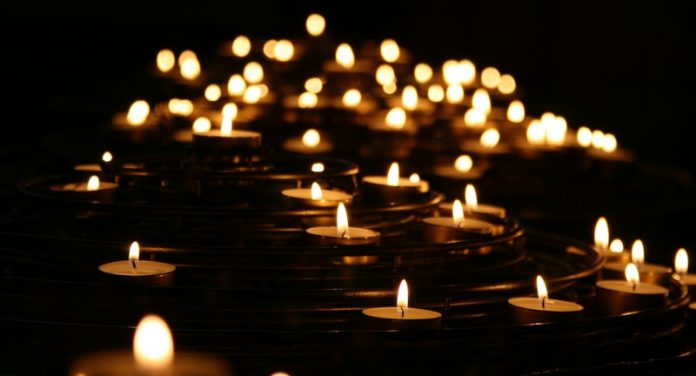
STEPHEN M. COLECCHI
“O house of Jacob, come,
let us walk in the light of the LORD!” (Isaiah 2:5)
This passage from the readings of the First Sunday of Advent captures an essential meaning of the seasons of Advent and Christmas. Light pushes back the darkness. With each passing week, we light another candle on the Advent wreath. Then Christmas lights show up everywhere—in our homes, neighborhoods, and public squares.
The message is clear: Into the darkness of our lives and world, a light has come. What is its source? What are its consequences?
Christ in Others
The Gospel of the Fourth Sunday of Advent announces the birth of Emmanuel, a name “which means ‘God is with us’” (Matthew 1:23). Jesus is “the light of the world” (John 9:5) and calls us to be “the light of the world” (Matthew 5:14). The incredible truth of the Incarnation is that God took on our humanity and became one of us.
Astonishingly, Christ’s Spirit enables us to honor the presence of Christ in others, especially in the poorest and most vulnerable members of the human family.
Jesus identified with those who live in the shadows of sin, injustice, and oppression. The Christmas story reminds us that human life and dignity—even in the form of God among us—is too often threatened. On the day of his birth, Christ was homeless. Shortly after his birth, he was the target of political persecution. His family fled as refugees into Egypt. Innocent infants lost their lives to a ruler’s oppression.
As the bishops of the United States taught in Sharing Catholic Social Teaching (1998), “In a world warped by materialism and declining respect for human life, the Catholic Church proclaims that human life is sacred and that the dignity of the human person is the foundation of a moral vision for society.” This is part of the message of Advent and Christmas.
We Walk in the Light of the Lord
God has taken on our humanity. And God calls us to defend the life and dignity of others. This mission is so central that the bishops recently adopted “the life and dignity of the human person” as one of five strategic priorities for the United States Conference of Catholic Bishops (USCCB).
Our lives and world know darkness, but the light of Christ dispels darkness and empowers us to walk in the light of the Lord. We can and must be light for others. Through gestures of love, acts of charity, and works of justice, we protect human life and dignity.
- Invite your students to identify ways they can be kind and loving toward others. As each gesture of kindness is named, light a candle or add a bright decoration to a small Christmas tree. Then marvel at the light they can bring to others.
- Contact your diocese or Catholic Charities to learn how your class might support resettling refugees or aiding immigrants. Decorate cards welcoming refugees, collect toiletries or food for families, or raise funds for the agency. Invite a local Catholic Campaign for Human Development group to share how it helps communities that are poor and help people with low incomes to help themselves.
- Pray the Rosary for Life found under prayer resources at usccb.org/prolife. The Joyful Mysteries are particularly appropriate during Advent and Christmas. Collect toiletries, baby clothes, and diapers for your local crisis pregnancy center.
- Have students cut out stories from newspapers that show when human life and dignity are protected or threatened. Place the clippings in two piles. Pray in thanksgiving for when human life and dignity are protected. Pray in petition for when they are threatened.
- Contact your diocese or state Catholic conference, or visit the Legislative Action Center of the USCCB (capwiz.com/catholicbishops) to act on an issue that touches human life and dignity (e.g., abortion, poverty, homelessness, immigration). Invite students to write letters to public officials.
- Visit the Catholics Confront Global Poverty initiative of the USCCB and Catholic Relief Services (usccb.org/globalpoverty). Learn how your parish can put a shining star on the Global Solidarity Map.
In these and other activities, consistently highlight how we bring Christ’s light into the darkness whenever we protect human life and dignity.
Dr. Stephen M. Colecchi is the director of the USCCB’s Office of International Justice and Peace. He is the author of In the Footsteps of Jesus: Resource Manual on Catholic Social Teaching, published by the USCCB.
This article was originally published in Catechist magazine, October 2010.
Photo by Mike Labrum on Unsplash




